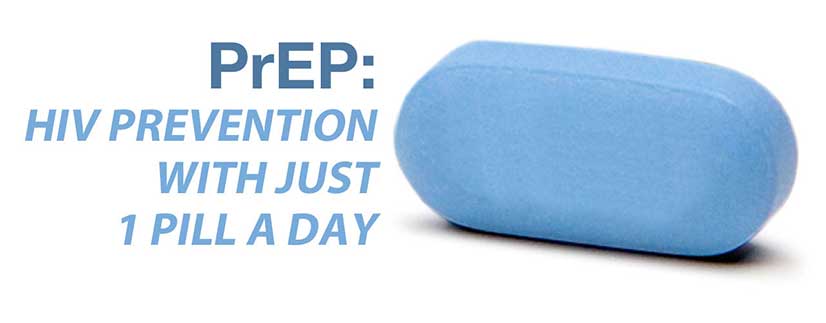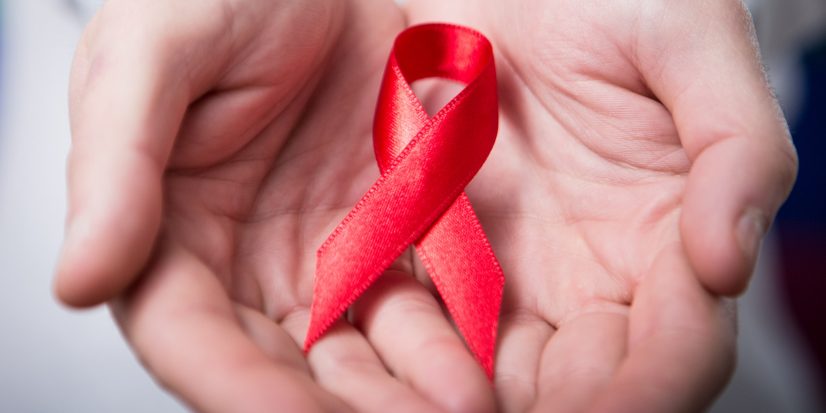This question of the risk of HIV Aids sometimes occupies our minds, actually most of the time. You don’t have to have an active sex life for questioning this. There are many people who think that they got (or will be) infected somehow and they will live in hell for the rest of their lives. So, if you are one of those people you are in the right place. Please listen to me carefully.
First of all, misinformation makes this problem bigger. I am pretty sure that you browsed all websites on the Internet and saw heaps of stories related to this topic. Let’s get the facts straight and find out what you need to know about HIV Aids.
What is HIV?
HIV stands for Human Immunodeficiency Virus and if it is not treated, it will live with you for life. I know this is the reason for you to feel frightened too much but keep calm. HIV attacks your immune system, especially your T-cells which take an important role in your fight against diseases and reduces the number of T-cells day by day. At the end, it destroys your immune system and you have AIDS.
What is AIDS?
AIDS stands for Acquired Immunodeficiency Syndrome which is the terminal stage of HIV. But not everyone who has HIV reaches this stage. When your T-cells fall under a certain limits, you are diagnosed with AIDS. Once you diagnosed with AIDS, your life expectancy will be around 3 years.
We heard about life stories of people who got infected with HIV eg. our dearly beloved Freddie Mercury or most of us have seen series/movies about life of people who have AIDS, for example Angels in America (2003) or The Normal Heart (2014). However, these happened 30 years ago. Thanks to modern medicine, someone diagnosed with HIV can live as long as a person who does not have HIV. The only way to achieve it first getting tested before it is too late and then staying on treatment.
History of HIV
Scientists believe that we got this virus via chimpanzees in Central Africa. They had different version of it and people hunted them for their meat, contacted their infected blood then that virus mutated into HIV. A First official report on AIDS was published in 1981 in the U.S.after death of 5 gay men.
There was a total of 270 reported case among gay men and 121 of those people died by the end of that year. And just a quick reminder, we are not in the era to say that AIDS is a gay disease. According to World Health Organisation (WHO) there were approximately 36.9 million people worldwide living with HIV at the end of 2014.
2.6 million of these were under 15 and 34 million people have died from AIDS related causes so far. An estimated 2 million individuals worldwide became newly infected with HIV in 2022.
You CANNOT Get Infected with HIV by:
- Mosquitoes or other insects.
- Air or water.
- Any fluid that is not mixed with the blood of an HIV-positive person.
- Shaking hands, hugging, sharing toilets, sharing dishes/drinking glasses.
You CAN GET Infected with HIV by:
- Having anal or vaginal sex with someone who has HIV without using a condom. In this case, receptive anal sex is riskier than insertive one. Vaginal sex is the second highest-risk sexual behaviour.
- Sharing needles or syringes with someone who has HIV. HIV can live in a used needle up to 42 days depending on the factors.
- From mother to child during pregnancy, birth or breastfeeding.
In Extremely Rare Cases, You CAN GET Infected with HIV by
- There is a tiny little possibility of getting HIV in oral sex. It is theoretically possible if an HIV-positive man ejaculates in his partners mouth during oral sex.
- Being bitten by a person with HIV (There is no risk if the skin is not broken).
- Contacts between broken skins, wounds.
- Deep open-mouth kissing if the one with HIV has bleeding gums.
- Eating food that has been pre-chewed by a person with HIV as long as infected blood mixes with food.

Stages of HIV
The symptoms of HIV depends on what stage you are in and it varies from person to person. Please remember that not everybody will experience these symptoms and the only way to make sure if you have HIV is to get tested and do it regularly in every 3 months. HIV is examined in 3 different stages
- Early Stage of HIV.
- Clinical Latency Stage.
- AIDS.
1. Early Stage of HIV
Don’t assume that you have HIV just after seeing these symptoms cause each of them can be caused by other illnesses. If you think that you get infected, get an HIV test. But bear in mind, there are many HIV test available so let your doctor know that you think that you are in Early Stage of HIV so that proper test can be applied. Symptoms of Early Stage of HIV may be experienced within 2-4 weeks after infection.
- Fever.
- Night sweats.
- Muscle aches.
- Sore throat.
- Fatigue.
- Swollen lymph nodes.
- Mouth ulcers.
2. Clinical Latency Stage (a.k.a. Chronic HIV Infection)
HIV is active but reproduces at very low levels in this stage. No symptoms may be seen in people with Chronic HIV Infection but they can transmit HIV to other people.
3. AIDS
HIV will destroy your body eventually if you have the virus and you are not on ART which is a medicine used to treat HIV. IT Stands for antiretroviral therapy. Symptoms of Aids are:
- Extreme and unexplained tiredness.
- Rapid weight loss.
- Sores of the mouth, anus or genitals.
- Memory loss, depression and other neurologic disorders.
- Prolonged swelling of the lymph glands.
- Red, brown, pink or purplish blotches or on under the skin.

How to Lower Your Risk of Getting HIV Aids Through Sexual Contact
- Using condoms consistently and correctly.
- Getting tested and treated for other STDs.
- Encouraging HIV-positive partner(s) to get and stay on HIV treatment.
- Choosing less risky sexual behaviour.
I am not gonna say that “Hey mate, it is impossible to get infected with HIV. If you have a friend having sex without using a condom with someone who is HIV-positive but he did not get infected” or “The risk is the same in both anal and oral sex, don’t do it!”
Do it, but do it in the way it should be.
Get well informed, use condoms, get tested regularly. Know that it is not the end if you get infected but also know that you will not get infected if you act responsibly. You know what you need to know about HIV now, you got tested several times and they are all negative but, still, you are pretty sure that you got infected with HIV and you have all the symptoms of it. Then all I can say is that you need to see a psychiatrist immediately because it seems like not HIV but OCD.
Stop acting like a lunatic, don’t make this world a hell for yourself and for the ones who are around you. There is always a solution for everything. “You are on Earth. There is no cure for that.” ( S. Beckett)
Enjoy your life, visit one of our stores and spice your sexual life up with the safest way. We have many sex toys and at least one of them will certainly meet your needs.

Staying Clear – Safe Sex Isn’t Quick Sex
You see him at the club. He sees you. You smile. He smiles. And then he comes on over to you. You dance. You drink. Your hands are all over each other – feeling, devouring each other’s bodies. Staring into each other’s eyes. Lips. Kissing. Tongues flickering.
You can both feel the lust rising between you – the heat between your legs as you want him.
He wants you.
He reaches towards your pants and feels you – you know what he wants as he smirks and you lean in closer, your lips brushing against his ears as your alcohol filled breath makes the hands on his neck stand up and he leans forward hungrily.
You open your mouth, closer . . . “I’ve had my sexual health test recently. What about you?”
It’s a question that we don’t ask often enough and it’s more prevalent than ever.
Introduction of PrEP
It has arguably lulled the gay community into a false sense of security and it’s certainly something that we need to shore up.
PrEP is an acronym that stands for pre-exposure prophylaxis. It’s an antiretroviral drug that an individual would take daily to protect from, and prevent HIV infection. But whilst Individuals on PrEP might be protected from the dangers of HIV.
It certainly doesn’t make them immune to other sexually transmitted illnesses such as gonorrhoea, chlamydia, herpes and genital warts, and a range of other easily transmitted illnesses.

Which Age Group Is More at Risk?
One would easily be mistaken in the idea that the older generations would see less sexually transmitted diseases. Statistics have indicated a worrying trend indicating sexually transmitted illnesses in the 50-70 category has risen by more than a third in the past decade.
So what do the gay community and the older sexually active community have in common?
Many people in this category are under the false belief that they don’t need to use condoms anymore. It’s a recent concern that’s coming up within the queer community with the approval of PrEP on the PBS scheme. There is a concern among some parts of the medical community that argue that PrEP should not be replacing condoms. Yes, it dramatically minimises the risk of HIV. But all the other STI’s shouldn’t be forgotten either.
PrEP Study
A French study in 2016 that went alongside the PrEP study found that individuals who knew they were on PrEP (not a placebo) had a significant decrease of condom use by up to 20% of the levels of condom use they had before being on PrEP.
A South African academic study published in 2017 on female sex workers indicated reductions in condom use on people using PrEP. This article noted that efforts to promote condom use among female sex workers on PrEP would be critical in raising the effectiveness of a decrease in STI and HIV transmissions.
Closer to home, an Australian study in 2017 noted a 23% decrease in HIV infection rates during the PrEP trial, but a marked increase in STI’s. Gonorrhoea is particularly troubling as drug-resistant strains are starting to pop up around the world. Though it has not yet been reported within Australian shores.
What Does All This Research Say?
This research indicates that it is critical to check your sexual partner’s health before engaging in sex.
It’s often considered a boner-killing conversation. But sexual health should come before all sexual desires. Whilst it has this loathsome reputation of being a heat killer – it doesn’t have to be.
A Sad True Story
I write this with the knowledge of a true story around a young questioning male who decided to engage in sexual relations with an older man. This was his first male-to-male sexual encounter and he heartbreakingly contracted HIV as a result. This young male – exploring his sexuality – had now contracted an illness that was going to be with him for the rest of his life as a result of having unprotected sex.
I’m not here to argue the morality of this case or advocate for mandatory safe sex. Whilst I acknowledge that this isn’t a common situation, it demonstrates how the decisions of multiple people have led to such an event and it highlights the importance of checking in with your sexual partner.
One could argue that neither of them knew. You could also argue that they should have worn protection. But as you’d know reading this, in the heat of the moment these questions come second to the driving factor of sexual arousal and desire.
Safe sex isn’t quick sex.
It’s not about lust and it’s not about the heat of the moment. You shouldn’t be asking the question in the club whilst you’re dancing. You certainly shouldn’t be asking in the toilet when you’re on your knees with his dick in your mouth.
When is a Good Time to Ask?
Ideally, you shouldn’t have the conversation when you’re aroused. Though I recognise the difficulty for some people in this especially when it comes to situational sex that arises through partying, clubbing and other events.
It can simply be a quick statement and question of ‘I’ve had my last sexual health check recently – when was yours?’ If they can’t remember, or won’t disclose, then you might want to reconsider your chosen playmate for the night. It might just be time to head home.
In such situational sex circumstances, it would be best to ALWAYS wear a condom.
In an ideal situation, you’d want to be having the conversation once you realise that there’s an attraction. Where you can both sit down without interruptions and ask a similarly phrased question.
It’s Just a Disclosure not a Judgement
You need to remember that talking about one’s sexual health involves the disclosure of their last sexual health check. Whether they’ve had an STI and whether they’ve been treated for it.
It doesn’t involve sexual partner history or any form of judgement on previous choices made. There’s no right A-B-C to having the conversation. But keeping it free from accusations and judgement will certainly make it go a lot easier.
Remember that it’s about ensuring each other’s safety, and not a personal inquisition. If you have concerns, politely and gently, bring them up or suggest that you go and get checked together.
I assure you, knowing that you’re both sexually clear will allow you to have stress-free check and will eliminate the need to awkwardly visit the doctor later on for questions. Or an urgent check for that night where you just didn’t put it on.
Author: Stephen Smith – BA Of Social Sciences, M.Ed

Jennifer is a marketer at Adultsmart! Embracing a non-judgmental stance, she believes in pleasure without limits—if it feels good and right, why not?








Leave a Reply